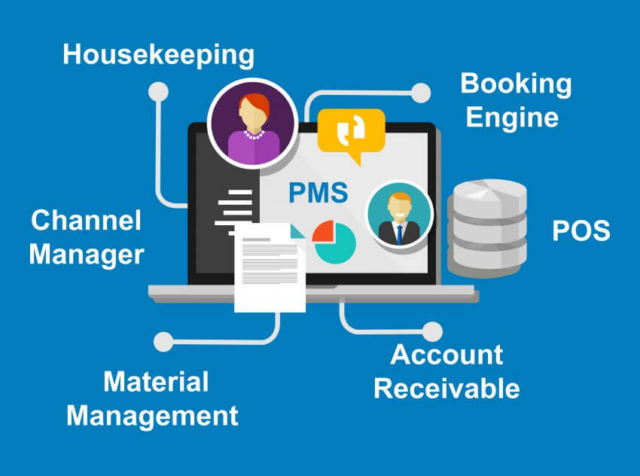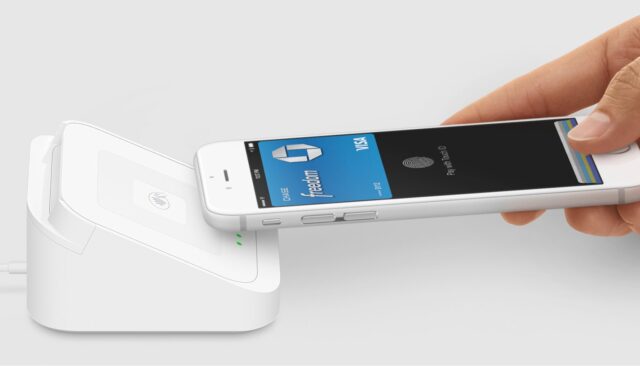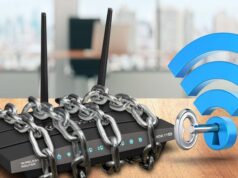
Technology evolves at a rapid pace, as do customer expectations, which are frequently impacted by new technology. Today’s travelers prefer services that are tech-driven, straightforward, and provide tailored experiences. The way hotels operate is being defined by the changing demands and desires of travelers.
Hotels and resorts that want to stand out in a crowded market utilize modern technology that allows them to provide greater service to their guests than the competition. Furthermore, certain technologies have made hotel operations truly frictionless, not merely in terms of offering the guest experience. Tasks that historically necessitated a large amount of personnel can now be completed in minutes with almost no human intervention.
Here are six ways hotel managers may use technology to improve their operations.
1. Manage The Reputation

The way brands are promoted has been permanently altered by social media. The requirement for a more review-oriented advertisement has prompted management techniques to change. Managers may efficiently build up their hotel’s brand, gain exposure, and secure new revenue streams by encouraging client input through a variety of venues.
Establishing successful communication with visitors is critical for managing a hotel’s online image. A hotel manager must initially focus on generating interest through internet campaigns and promotions in order to develop an effective reputation management strategy.
When it comes to deciding whether or not to proceed with a booking, potential guests appreciate the opinions of other guests above all other ratings. A prompt and courteous response to both complaints and compliments makes the guest feel appreciated, encouraging them to return.
2. Provide Smart Convenience
Check-in should be swift and painless for guests. Most airports allow customers to check-in online or at kiosks where they can create their own baggage tags without requiring assistance from airport workers. Many fast-food establishments have tablets or kiosks where you may put your orders and pay. Tickets can be purchased or collected at a digital kiosk in the cinema.
In the hotel sector, guests want the same kind of smooth, technology-driven, contactless experience, especially as contactless hospitality becomes increasingly common. There’s no need to wait in a queue or leave your room to get food, whether it’s via scanning a QR code at an automated kiosk or ordering room service on a tablet.
3. Use Hotel Management Software

For hotel managers, hotel management software is becoming increasingly vital, as it provides more efficient and cost-effective solutions to handle a variety of duties and activities. Any software program designed to aid in the day-to-day management of a hotel, resort, or similar facility is referred to as hotel management software.
Automation can help you save money on labor by allowing you to reduce the number of people you hire, lower the number of hours they work, or simply achieve more productivity in other areas.
Hotel management software can also assist you in increasing revenue. For example, revenue management systems can help you optimize pricing and distribution by combining historical data, existing data in the books, and industry data to precisely predict demand.
Double booking is a common issue in manual operations however owing to system features and checks; hospitality software can prevent this from happening. Hotel management software such as Book4Time is designed to avoid repeated entries and incorrect data type inputs. If you erase any data or text by mistake, it automatically preserves the same.
4. Facilitate Communication For Guests
Billions of individuals use messaging as a primary mode of communication on a global scale. Regardless of the service, most of us are completely reliant on messaging in both our personal and professional lives – therefore, it’s no surprise that customers who engage with their hotel via instant or direct message channels report much better levels of satisfaction.
Today’s guests want their hotel stay to be tailored to their specific requirements, including the ability to communicate on their own terms. Using messaging technology allows visitors to reach out with any questions or concerns in a more effortless and practical manner. It also allows employees to respond quickly and directly to issues, enhancing the guest experience and making them feel valued.
5. Use Smart Key Technology

Near-field communication technology (NFC) is employed in smart room keys, which is effectively the same technology used in mobile payments. Two devices can converse and share information in close proximity via NFC.
As a result, NFC technology not only makes it simple to open a hotel room door but it also makes it possible to provide visitors with exquisitely individualized experiences ranging from targeted ad content to monitoring loyalty points for utilizing room service. They can connect directly with users’ smartphones via Bluetooth, which explains their rising popularity.
6. Provide High-Density WiFi Throughout The Property
While guests’ smartphones are likely to have a data plan, their laptops and tablets will rely on WiFi. WiFi is no longer a feature for which some customers will gladly pay a premium.
It’s an absolute must-have. If free WiFi isn’t included in the booking, over half of the business visitors will select a different hotel. Within 5 minutes of checking in, 40% of all visitors will be connected to the WiFi network!
Conclusion

The state of technology is ever-changing. Hotels of all sizes must adapt to their customers’ evolving demands. Hotel managers are understandably wary of jumping on every new technology bandwagon, given the high costs of investment. Some of the latest developments in the hospitality business that have made headlines are yet to be validated in the long run. Others, on the other hand, aren’t doing so well.
All of the technological breakthroughs mentioned in this article, on the other hand, have been proven to work. Invest in the strategic enhancements recommended if you want to get the most out of technology at your hotel. Not only will your guests have a better time, but your entire operation will be more efficient.












